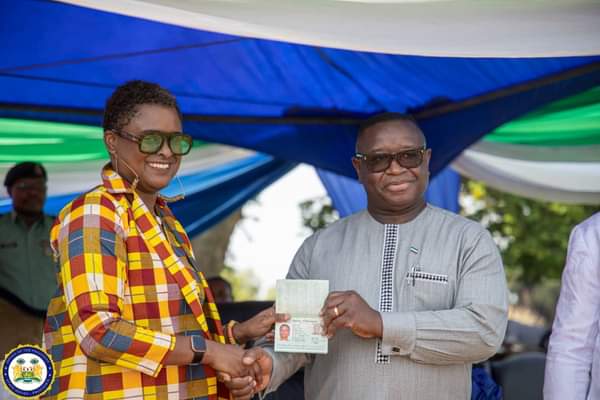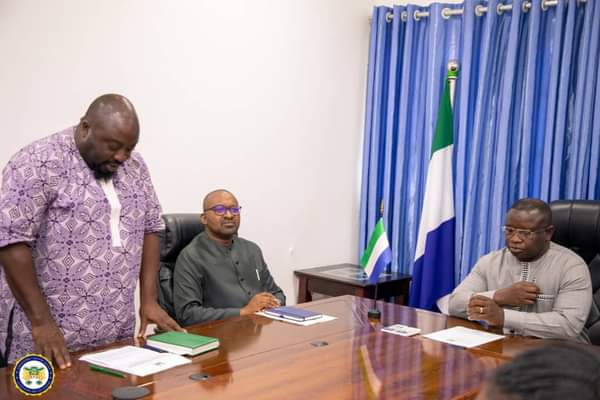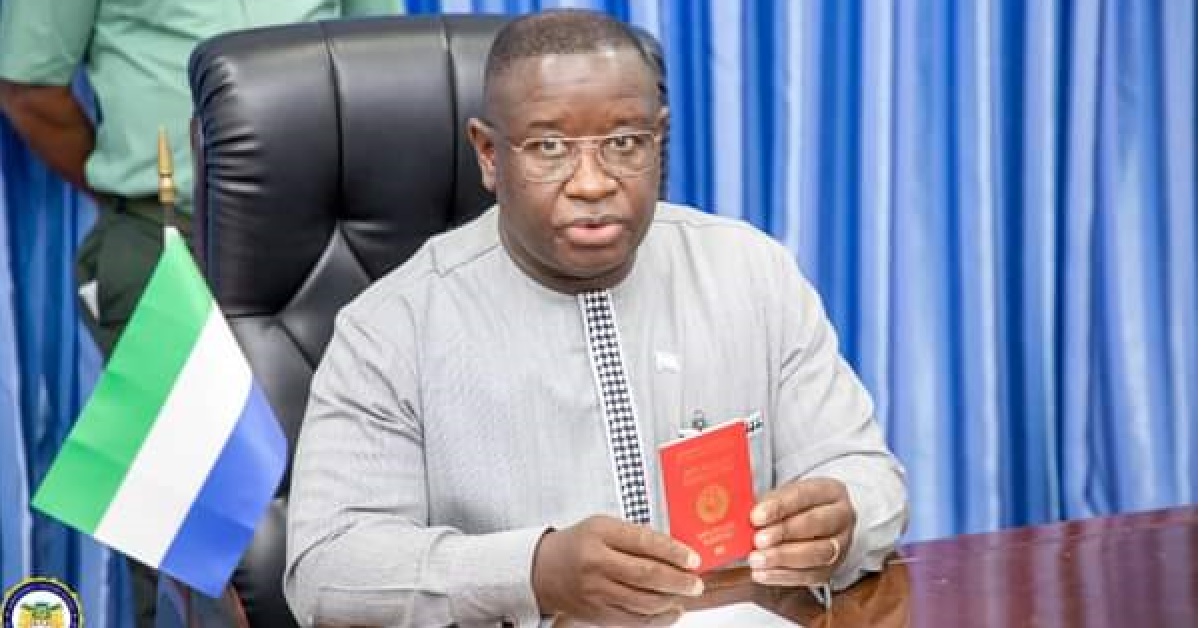The Chief Immigration Officer, Andrew Jaiah Kaikai, presented the first copies of the new secured national passports to His Excellency President Dr. Julius Maada Bio and Vice President Dr. Mohamed Juldeh Jalloh today, granting citizenship to 109 African diasporans and establishing Sierra Leone as a sovereign state.
The updated national passport is an electronic version of the old one with additional security measures to prevent passport forgery and cloning.
David Panda-Noah, the minister of internal affairs, said to the president: “I’m thrilled to be here as an active participant in the process that will eventually provide Sierra Leoneans with reasonably priced securitized passports. The International Civil Aviation Organization (ICAO) should recognize this passport “.

He continued by saying that they had hired the E-passport contractor to enhance the current passport and include specific securitized features as part of the President’s directions to reform the immigration system.
“I am proud to inform you that the new national passport meets all ICAO and other international standards. The chip embedded in the passport makes it electronically readable and could be used at any E-gate,” he noted.
President Julius Maada Bio welcomed them as they took the oath of loyalty and conferred citizenship on them, describing the occasion as the culmination of a historic journey following months and years of ancestry research.
“No matter whether they are returning home voluntarily or as a result of forced migration brought about by slavery, we as a people have always extended our hands and smiled at our brothers and sisters. We refer to this voluntary movement as the “Africa Diaspora.”

“Sadly, because our brothers and sisters were abducted and sold from the early 16th century to the late 18th century, the history of slavery has always been ingrained in our minds. That history was centered on our nation. Thousands of enslaved Africans were transported in 1675 via Bunce Island Slave Fortress, a significant center for exporting slavery in the Sierra Leone Rivers. The colony of Freetown was designated as a settlement for enslaved people in 1787. Thus, the first group of liberated people—known as the black poor—were sent to Freetown, the president said.
The President said that he believed Sierra Leone’s future could not be determined by the painful legacy of slavery, and that is why his administration was putting into action the most audacious human capital development program that could provide over two million children with free, high-quality education nationwide.
“We have repealed the 55-year-old criminal libel legislation, ensuring journalists’ right to criticize the government without fear of reprisal. Among other things, we eliminated the death penalty and passed the historic Gender Equality and Empowerment Act.
The new Sierra Leone is this. We want to create a nation that is progressive, educated, and welcoming to investors, but as we embark on this new road, we are also aware that for our country to continue to prosper sustainably, its diasporans must actively participate. As a result, we have been encouraged over the years by the return of hundreds of Sierra Leoneans from the African diaspora. Some have not only taken the pledge, gathered their passports, and come home; they are also already making a difference in several areas.
He urged them to maximize the Sierra Leone diaspora resources for the benefit of the country by looking into trade and investment opportunities, applying their expertise and skills to the development, and encouraging them to be effective ambassadors in rebranding and promoting Sierra Leone and changing the country’s direction will help the African Diaspora travel there sustainably.











